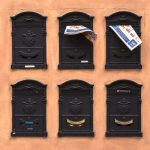How do you feel, really?
Welcome to July and our mid-year reflection. How are you? How are you feeling after all those months of storms and the unveiling of uncomfortable truths about our humanity?
We have all come so far, and we all still have a lot of work to do. Many of us experience a lot of collective, generational and individual trauma. Many of us wake up to the climate emergency. Many of us are finally realising the cost of economic inequalities. We are also learning from the pandemic to face global challenges collectively. We are re-connecting with forgotten and disempowered groups. We finally connect with the uncomfortable conversations and feelings of guilt stemming from our privileges.
We start to look around. We care. We re-connect.
We are doing a lot of emotional work. So today, I would like to bring your attention to the cost of all this effort on our health holistically, the need for balance in healing.
Historically, in therapy and coaching, we mainly focus on our mental health, cognitive reasoning and habits. However, I think oftentimes, it is our bodies that take the first hit.
Sometimes it might help to think a bit more about how we feel, really, physically. Stress, anxiety, trauma build up quietly, day by day, and ultimately impact all aspects of our health.
This summer, I look around and sense the increasing need to rest and restore—more than ever before during the summer months. Business leaders cut down on their work time.
Creatives struggle with writing. Executives hold on to their deadlines, just about. So quite rightly, rest seems to be the dominating theme in most of my reads at the moment.
However, to rest and restore, we need to reflect carefully on how we are. What is the state of our health – individual, collective and global? Where are we now, and what do we need to do to get better? Healing is not necessary restful, you see. The common assumption about resting is that it is passive, light and comfortable.
Yet a sustainable restoration also means active, physical, deep work which requires energy and effort. It means slowing down not to do less, but to identify the losses and to rebuild. However, since we are exhausted already, it is incredibly important to get the balance right.
Be smart about your rest this summer. Find the right rhythm of switching off and re-activation of your body and mind in new ways. If you slow down, do so softly. If you rest, stay active. If you heal, manage the level of deep work required very carefully. Shift the gears intentionally to keep yourself and others around you well.
I wish you a soft July. Stay safe and stay connected to whatever your wellbeing needs this summer.
My favourite topic this month
Learning about active wellbeing is tricky because our mainstream culture is full of misconceptions. However, I would like to recommend the following finds:
“The Body Keeps the Score: Mind, Brain and Body in the Transformation of Trauma” by Bessel van der Kolk
“The real reason why we are tired and what to do about it” – TEDx talk about seven types of rest – Saundra Dalton-Smith
“The Joy of Movement” by Kelly McGonigal
“Breath: The New Science of a Lost Art” by James Nestor
“Exercised” by Daniel Lieberman
“Microadventures” by Alastair Humphreys
I hope you will find those sources useful. If you have a recommendation on this topic, please do let me know!
My favourite resources this month
When working in carrying professions, we can often tend to give a bit too much than we can afford. When desperate for healing, we can rush off the process. So today, I would like to share my very personal favourite quotes from my teachers:
“Don’t run before you can walk.”
“Put your own mask on first before helping others.”
“Keep one foot in your own boat.”
“Don’t take a brick out of a wall unless you know how to put it back.”
“Go softly. Slow down before you stop. Don’t stop if you cannot start afterwards.”
“Sit down and listen: what is the story your body is telling you? What else is there? What are you not hearing?”
“If in doubt, ask or Google it! Do not suffer alone.”
I hope the above advice is useful, but please let me know what helps you get the balance right.
—
Click here to sign up for our monthly newsletter.
—
Photo by Chris Blonk on Unsplash

